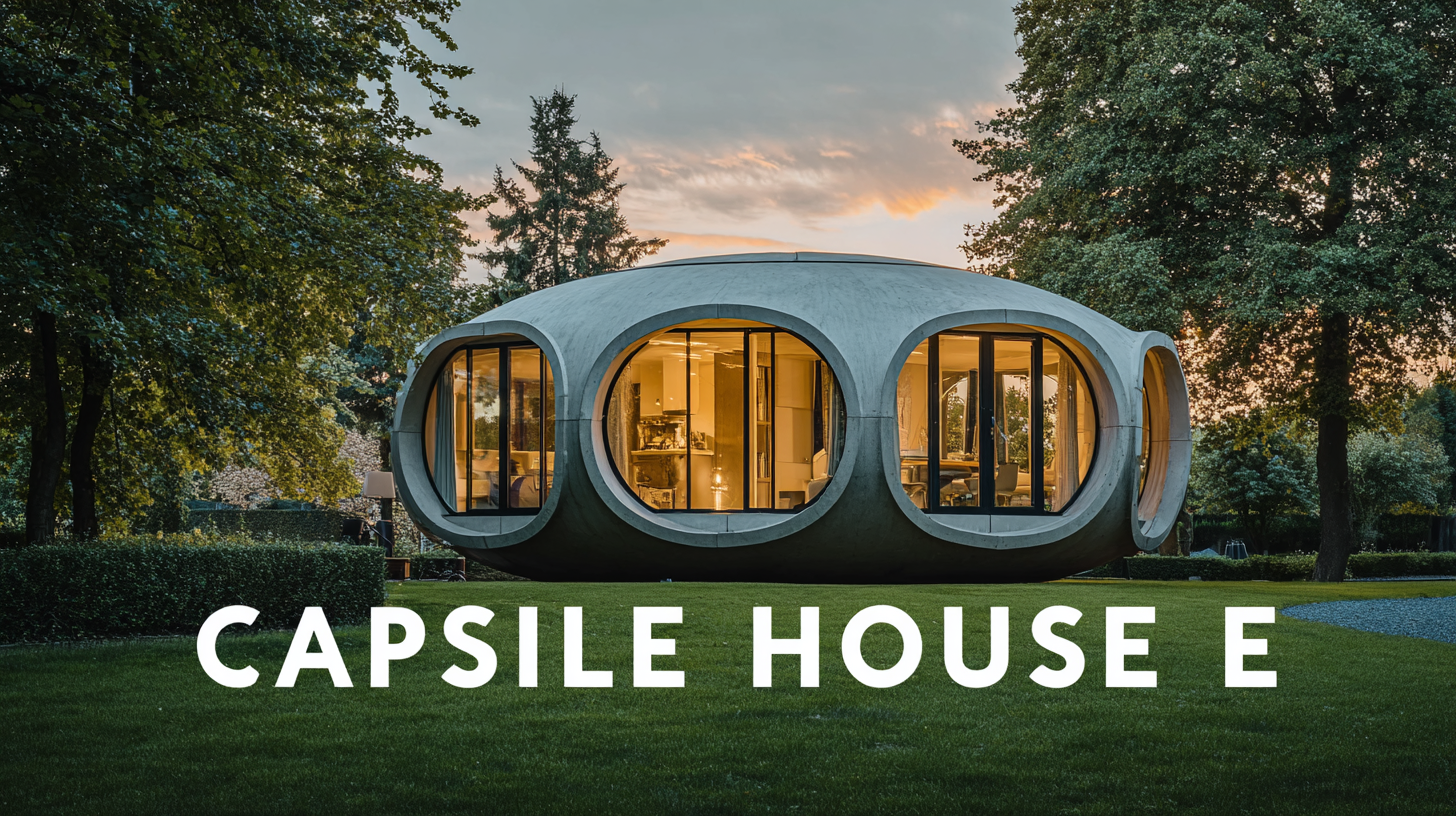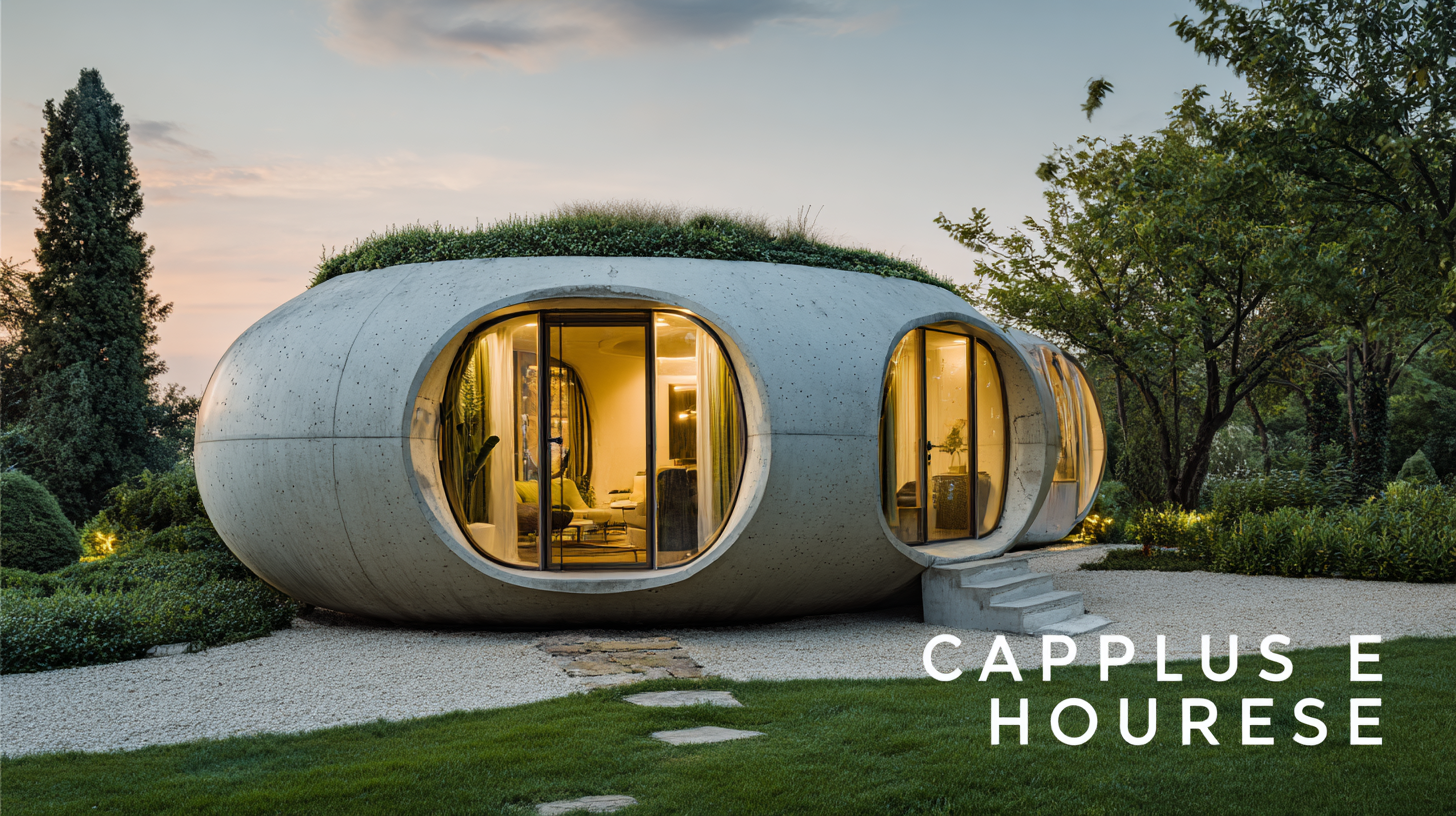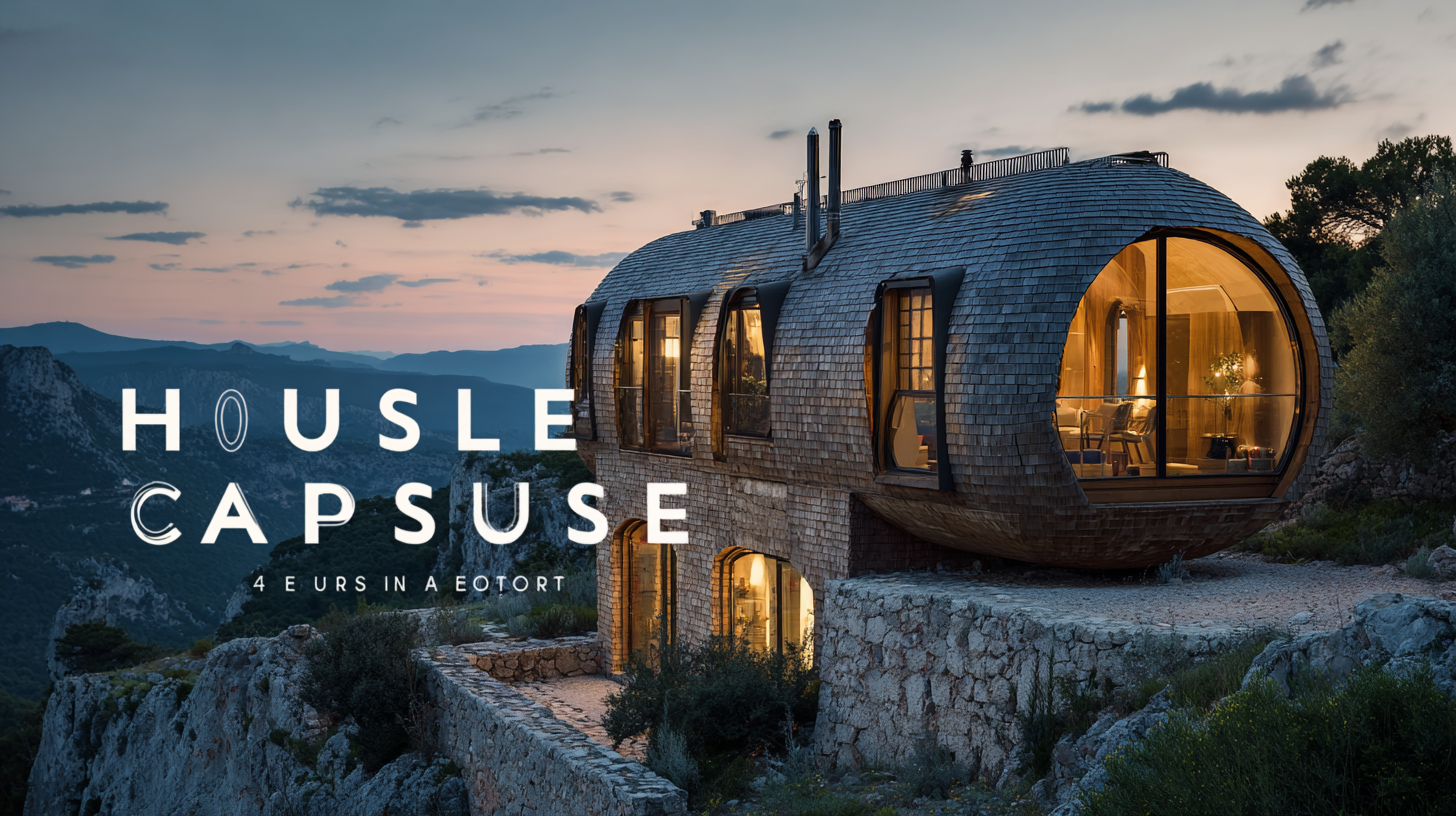
News
Ultimate Guide to Sourcing the Best Capsule Houses in Europe: Trends and Insights for Global Buyers
In recent years, the concept of "Capsule House Europe" has gained significant traction among global buyers seeking innovative and efficient living solutions. These compact and stylish homes not only maximize space but also embody the latest design trends and sustainable practices, making them an attractive option in today's fast-paced world. As we approach 2025, various technological advancements are expected to shape the future of capsule housing, influencing everything from construction materials to smart home integrations. This ultimate guide delves into the current trends and insights within the capsule house market, equipping international buyers with the knowledge needed to navigate this evolving landscape. Join us as we explore the best sourcing strategies for capsule houses across Europe, highlighting key innovations and emerging patterns that are set to define the industry's future.

Key Attributes to Look for in Premium Capsule House Manufacturers
When sourcing premium capsule houses in Europe, it is essential for global buyers to focus on several key attributes that distinguish top manufacturers from the rest. Quality materials are paramount; look for capsule houses constructed with durable and eco-friendly options that withstand the test of time and weather conditions. This not only ensures longevity but also aligns with the growing trend towards sustainability in the housing market. Additionally, manufacturers that prioritize innovative designs and customization options can provide a more tailored experience, appealing to diverse customer needs and preferences.
Another critical factor to consider is the manufacturer's reputation and track record. Researching customer reviews and industry accolades can provide insights into a manufacturer’s reliability and service quality. Furthermore, their ability to offer comprehensive after-sales support, including maintenance services and warranties, reflects their commitment to customer satisfaction. Engaging with manufacturers who emphasize transparency in their production processes and adhere to strict quality control measures can further assure buyers of the value they are investing in. By keeping these attributes in mind, buyers can effectively navigate the European market for capsule houses and make informed decisions.
Trends in Capsule House Manufacturing in Europe
Emerging Trends in Capsule House Designs Across Europe
Capsule houses are becoming increasingly popular across Europe, offering innovative living solutions that cater to modern urban lifestyles. As more global buyers are drawn to these compact, efficient designs, several emerging trends have begun to shape their development.
One key trend is the focus on sustainable materials. Designers are prioritizing eco-friendly construction materials, often incorporating recycled elements to minimize the environmental footprint. This not only attracts eco-conscious consumers but also aligns with the broader shift toward sustainability in the housing market.
In terms of design, versatility has become paramount. Many capsule houses are now being designed with modular components that allow for easy reconfiguration based on the owner's needs. This adaptability makes them appealing for various contexts, from urban living to vacation rentals.
**Tips**: When sourcing capsule houses, look for developers who emphasize sustainability in their projects. Additionally, consider the flexibility of the space; opt for designs that can adapt over time. Finally, keep an eye on local regulations, as they can greatly influence the feasibility of capsule house living in different areas.
Ultimate Guide to Sourcing the Best Capsule Houses in Europe: Trends and Insights for Global Buyers
| Design Trend | Description | Popular Materials | Target Demographic | Price Range (EUR) |
|---|---|---|---|---|
| Sustainable Designs | Focus on eco-friendly materials and energy-efficient systems. | Bamboo, Recycled Metal, Eco-Glass | Environmentally-conscious travelers, Millennials | 20,000 - 40,000 |
| Smart Capsule Technology | Integration of IoT devices for enhancing guest experience. | Smart Glass, Aluminium, High-tech Fabrics | Tech-savvy individuals, Business travelers | 25,000 - 50,000 |
| Modular Designs | Flexible spaces that can be reconfigured as needed. | Plywood, Steel Frame, Composite Materials | Families, Group travelers | 15,000 - 30,000 |
| Minimalist Aesthetics | Simplicity in design, focusing on functionality and space-saving. | Concrete, Glass, Minimalist Furniture | Young professionals, Solo travelers | 10,000 - 20,000 |
| Biophilic Design | Incorporating natural elements to enhance well-being. | Natural Wood, Green Living Walls, Organic Textiles | Health-conscious travelers, Nature enthusiasts | 20,000 - 35,000 |
Sustainability Practices in Capsule House Production
The trend of capsule houses in Europe has gained significant traction, particularly among global buyers seeking sustainable living solutions. Recent studies indicate that the construction industry is responsible for approximately 39% of global carbon emissions, prompting a shift towards eco-friendly building practices. Capsule houses, with their efficient use of space and materials, stand out as a promising solution in minimizing ecological footprints. Reports from the International Energy Agency reveal that sustainable building materials can reduce carbon emissions by up to 25%, a crucial consideration for conscious consumers.
Moreover, many European capsule house manufacturers are adopting innovative sustainability practices. For instance, incorporating recycled materials and utilizing renewable energy sources during production can further enhance their environmental friendliness. According to the European Commission, the circular economy can increase the competitiveness of the construction sector, potentially generating an additional €1 trillion in economic benefits by 2030. As buyers increasingly prioritize ecological integrity alongside design and efficiency, the demand for sustainably produced capsule houses is poised to rise, reflecting a broader commitment to greener living.

Comparative Analysis of Leading Capsule House Suppliers
When diving into the world of capsule houses in Europe, a comparative analysis of leading suppliers reveals significant trends and insights for global buyers. Notably, companies like
Gecowet,
NestHouse, and
PodSpace
have established themselves as frontrunners, each with unique offerings that cater to different market segments.
Gecowet focuses on sustainable materials and energy-efficient designs, appealing to environmentally conscious consumers.
In contrast, NestHouse offers customizable units that prioritize comfort and aesthetics, allowing buyers to tailor their capsule experience to personal tastes and lifestyle needs.
Another key player, PodSpace, emphasizes affordability without sacrificing quality, attracting a broader audience looking for practical solutions in urban living. Their modular designs cater to both short-term and long-term living arrangements.
As global buyers evaluate these suppliers, it's essential to consider factors such as production methods, delivery times, and after-sales support. This comparative approach not only highlights the diversity within the capsule house market but also guides buyers in making informed decisions on investments that align with their expectations and values.
Essential Questions to Ask When Vetting Potential Manufacturers
When considering potential capsule house manufacturers in Europe, it's vital to ask the right questions to ensure that they meet your business needs and comply with sustainable practices. As corporations increasingly focus on Environmental, Social, and Governance (ESG) criteria, questions about sustainability should be at the forefront of your evaluation. Inquire about their waste management practices, energy usage, and labor policies to gauge their commitment to social responsibility. Additionally, understanding their compliance with local and international regulations will help you assess their reliability as a production partner.
Operational capability is another critical area for evaluation. Ask about their production capacity, quality control processes, and the technologies they employ. How do they handle supply chain disruptions, and what safeguards do they have in place to ensure consistent delivery? These questions will provide insight into their ability to meet your demands while maintaining quality standards. Furthermore, in today's rapidly evolving market, it's advisable to discuss their adaptability to emerging trends, such as the integration of digital solutions and sustainability initiatives into their operations.

